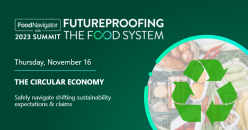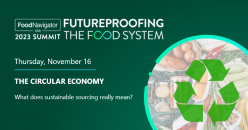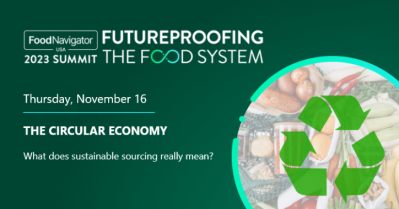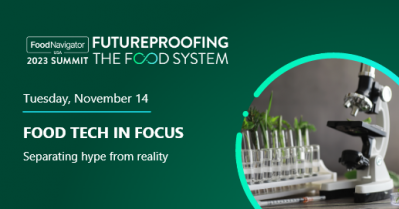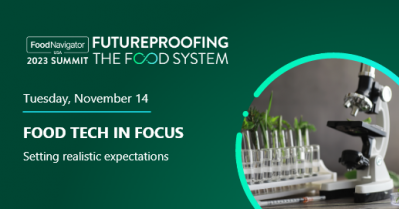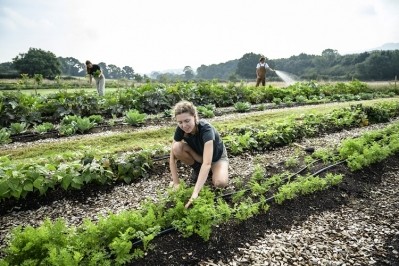From seed to table: How the food, beverage industry is building resilient supply chains
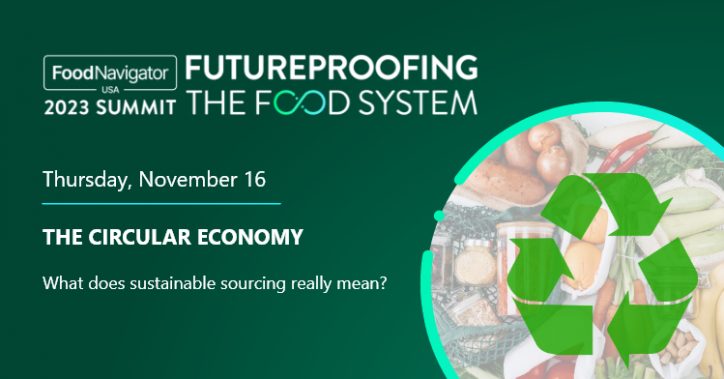
In an upcoming FoodNavigator-USA Futureproofing the Food System session titled, “Creating Resilient Supply Chains: From Sustainable Sourcing to Ensuring Worker Welfare to Balancing Supply & Demand,” industry experts from across the food supply chain will share their perspective on building a better food system (register here).
To discuss this topic in detail, FoodNavigator-USA senior correspondent Ryan Daily will moderate and will be joined by:
- Doug Baker, VP of Industry Relations for FMI
- Lisa Curtis, Founder & CEO of Kuli Kuli Foods
- Marc Diaz, CCO at Terviva
- Carla Saunders, Senior Marketing Manager at Cargill
To learn more about this session and others, visit the FoodNavigator-USA Futureproofing the Food System event page and register today here.
Creating supply chains from scratch sustainably
Many food and beverage companies are working with supply chains that have existed for hundreds of years. However, companies like Kuli Kuli Foods and Terviva had to effectively create new supply chains for foods and ingredients that didn't have a market in the US a decade ago (moringa for Kuli Kuli, pongamia flours and oils for Terviva).
“We weren't dealing with a very established commodity supply chain. We are building a supply chain from scratch, and so we really based it all on how do we make this a win-win for the farmers? How do we achieve the quality targets that we need and make it, and then also how do we make it a win-win for consumers?” Curtis told FoodNavigator-USA.
In the ten years that Curtis has building Kuli Kuli, she has witnessed numerous impacts on the moringa supply chain from COVID lockdowns, hurricanes, political strife, and others, and “every single year between 10% and 20% of [Kuli Kuli's] suppliers are no longer able to sell moringa again the next year.” To counteract this, she has worked with the farmers to provide financial incentives for growing the crop.
Curtis also sees crops like moringa and others becoming more important in the fight against global warming.
"Resiliency to me is also about what types of crops you're growing because as the climate gets warmer, there are certain crops that are super-water intensive and are not sustainable and not resilient."
Working with farmers, embracing regenerative agriculture
Building a resilient supply also is about investing in land, people, and the environment, Diaz told FoodNavigator-USA.
"We measure the impact in communities in two ways. The first way is how does it improve livelihoods. We measure that in the income that we generate for smallholder rural communities in India, but also for farmers who farm in rural America or rural Australia. The second place where we generate a lot of impact that makes this a really attractive business is in the impact on land use."
Terviva measures its impact on land usage in four areas: carbon, water, biodiversity, and soil health. Within those four areas, the company focuses on environmental stewardship, land and water usage, and quality of water, he said.
Terviva is also supporting the biodiversity and the local ecosystems by creating “wildlife corridors” that don’t displace animals, he added.
“Agriculture is a working landscape, and there's a connective purpose, and so, connected corridors or wildlife corridors are going to increasingly rely on not just conservation areas, but areas like ours that are working landscapes, ranches, and farms that have minimal impacts on wildlife that are going to move through them, that need these habitats to preserve long-standing migration patterns or simply to coexist.”
To learn more about how the food and beverage industry is creating a resilient supply chain through regenerative farming, advancements in ag tech, and more, tune into the “Creating Resilient Supply Chains: From Sustainable Sourcing to Ensuring Worker Welfare to Balancing Supply & Demand" session at the free-to-attend virtual FoodNavigator-USA Futureproofing the Food System Summit on Nov. 16, for more insight. Visit the event website to learn more and register today.
